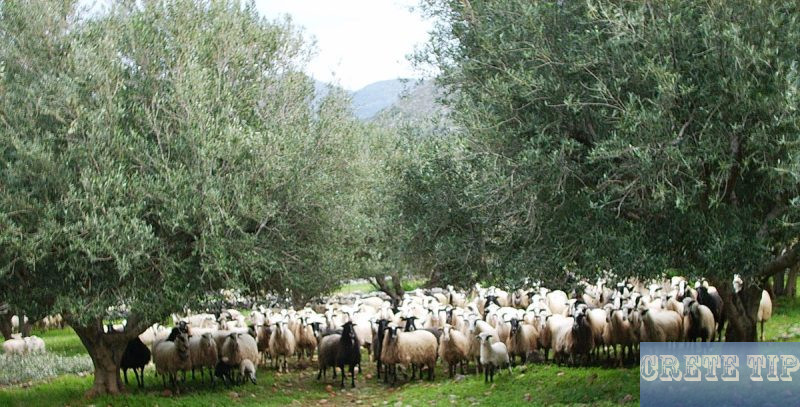Due to delayed subsidy payments caused by the OPEKEPE scandal, livestock farmers in Crete are staging protests.

The ‘stab in the back of Cretan tourism’
Crete’s been through the wringer lately. Farmers and livestock breeders set up coordinated roadblocks near Heraklion Airport and along the BOAK highway on Friday, which pretty much brought traffic to a standstill.
Hundreds of tourists got stuck. Some families and older travelers had to abandon their cars, dragging luggage under the blazing sun just to make their flights.
Local authorities and tourism groups didn’t hold back, slamming the chaos for hurting Crete’s image as an international hotspot. The frustration was palpable.
About 500 passengers missed their flights because of the blockades. There’s talk of big financial losses, especially once all those compensation claims start rolling in.
Officials are practically begging protesters to think about the island’s economic health. Tourism keeps Crete afloat, and everyone knows it.
Meanwhile, the weather’s been relentless. In Palekastro, heavy storms triggered flooding and landslides, dumping mud and debris all over the roads.
Travel just got riskier. The battered infrastructure is struggling to keep up.
Key Issues
Issue | Impact |
|---|---|
Agricultural and livestock blockades | Traffic jams, hundreds of tourists delayed or stranded, damage to tourist image |
Missed flights | 500+ travellers affected, financial loss, increased compensation claims anticipated |
Extreme weather events | Flooding and mudslides in Palekastro, damaged roads, further travel disruption |
Negative social media coverage | Phrase “Never again Crete” widely shared, influencing visitors’ perception |
Effects on Tourism and Community
The protests and wild weather have really pushed Crete to its limits. Tour operators and local businesses say travelers are losing confidence.
Some folks are rethinking their vacation plans altogether. Safety and travel headaches are top of mind.
Heavy rain and flooding around Palekastro have left residents with damaged homes and blocked roads. Clean-up crews are still working, but some areas are basically cut off.
These weather swings make Crete look even more vulnerable to climate-related events. It’s another headache on top of everything else.
Calls for Action
Tourism reps are calling for real solutions, not just talk. They want better communication with farmers, stronger infrastructure, and faster emergency responses.
There’s a lot of pressure on authorities to handle protests without shutting down crucial areas like Heraklion Airport. Balancing Crete’s reputation with the right to protest? Not easy.
For more on what went down and how locals are handling it, check out the recent reports on the BOAK highway chaos and tourism fallout.
The viewpoint of Cretan livestock farmers
The president of the Heraklion Livestock Association went public with his regrets. He knows the recent protests by livestock farmers made life hard for thousands—locals and tourists alike.
He insists the goal wasn’t chaos. The farmers just wanted to draw attention to urgent problems threatening their livelihoods.
They picked the main coastal highway near Paliokastro for their demonstration after a lot of debate. Blocking the airport felt like crossing a line, so they steered clear.
Still, frustration boiled over. Many farmers can’t afford animal feed, and some feel abandoned—especially those missing out on financial support while others seem to profit unfairly.
During the protest, they let emergency vehicles through and helped kids and elderly travelers. They tried to keep safety in mind, even if things got messy.
The community mostly understood, seeing the farmers’ actions as a fight for survival rather than just another protest.
The protest was supposed to last late into the night. But after watching the disruption firsthand, they wrapped it up early.
They wanted a response from the government—maybe even a word from the Prime Minister—but got nothing. That silence stung and fueled their anger.
Now, protest leaders are asking for support from society. They want folks to see that their struggle is about saving their farms and way of life.
Missed subsidies and rising costs feel like a threat to the whole sector. They’re hoping for some solidarity.
Key Issues Highlighted by Farmers | Effects on Society |
|---|---|
Delayed or missing subsidies | Public road and airport disruptions |
Rising costs for animal feed and supplies | Frustration among citizens and tourists |
Risk of losing livestock due to shortages | Increased tension and inconvenience |
Need for government attention and support | Calls for social understanding and unity |
The farmers say their demands are fair. They apologize for the trouble, but insist their fight is about survival, plain and simple.
If you want to dig deeper into the livestock farmers’ perspective, their full statement is available.
OPEKEPE Scandal: The Crete-Based Clans and the Farmer with €1 Million
The investigation into fraudulent agricultural subsidies has put Crete in the spotlight. Families there, often tight-knit, allegedly gamed the system by filing bogus claims for payments meant to support real farming work.
These groups, mostly relatives, managed to cover for each other during inspections. It sounds almost like a small-town drama, but the stakes are huge.
One case stands out: an elderly woman in Kozani reportedly collected nearly €1 million in subsidies over five years for land she didn’t own. It’s wild, and it shows how deep the problem runs.
Authorities checked thousands of taxpayer IDs (AFM). More than a thousand showed violations, with illegal subsidies hitting about €22.6 million.
Crete alone accounted for €17.2 million of that, tied to 850 suspicious IDs.
Region | Number of Suspicious IDs | Illegal Subsidies (€ million) |
|---|---|---|
Crete | 850 | 17.2 |
Rest of Greece | 186 | 5.4 |
Total | 1036 | 22.6 |
Turns out, over 10 of the 15 people who got more than €100,000 illegally were from Crete. The number of reported goats and sheep on the island more than doubled since 2017, even as livestock numbers dropped elsewhere in Greece.
That spike doesn’t feel like a coincidence. Investigators think these clans over-reported animal numbers on purpose to grab more subsidies.
They’re organized for this. Family members file fake info about animals and land, then stick together when the auditors show up.
Authorities aren’t mincing words. Public funds from OPEKEPE and the EU should help real farmers, not pad the pockets of fraudsters.
The Minister of Citizen Protection has called out the damage to the rural economy. Honest farmers can’t compete when cheaters scoop up subsidies they shouldn’t get.
This kind of fraud twists the whole system and chips away at trust in agricultural aid. It messes with development, too.
Officials are tightening verification and ramping up penalties. They’re watching suspicious IDs more closely, especially in places like Crete where these networks have deep roots.
The goal is to break up criminal networks and claw back stolen money.
All of this shows how tough it is to police subsidies in regions where family ties run strong. There’s a real need for better controls to keep public resources safe and support farmers who play by the rules.
For anyone interested, more investigation details are out there, laying bare the size and stubbornness of these scams. The elderly woman who nearly pocketed €1 million? She’s become the face of how messy things can get.
Crete remains in the spotlight because of the sheer amount of fraud and the organization behind it. Investigations are ongoing, and there’s hope that cracking down now will keep history from repeating itself.
Fewer Farmers Submit Subsidy Applications This Year

This year, the number of farmers applying for subsidies through the main agricultural scheme dropped sharply. Official data shows at least 100,000 fewer submissions compared to last year.
That’s a pretty big shift, and it’s hard not to wonder what’s really going on. Many farmers who used to apply for help with production or livestock costs just… didn’t bother this time.
It’s not just a random change in farming patterns. Some farmers seem to be steering clear of the process because of ongoing investigations into the subsidy system.
By skipping applications, a few folks might be hoping to keep their names out of the official records. Maybe it’s a reaction to all the scrutiny and legal noise swirling around lately.
Deadline for Applications Approaches
The deadline for subsidy applications was Friday 29 August 2025. Authorities said there’d be no extensions—period.
This put a bit of pressure on farmers and agricultural groups to get their paperwork sorted fast, or risk missing out entirely.
People who help farmers with these applications kept reminding everyone to double-check their submissions before the final day. Nobody wants to get disqualified or have their aid delayed over a simple mistake.
Subsidy Payments to Begin Soon
Farmers can expect payments to start rolling out between the end of August and early September 2025. The Agriculture Minister said payments will come in waves over a short period, which should help a lot of people quickly.
Even though stricter checks caused some recent delays, officials keep insisting that everyone who’s eligible will get what they’re owed. For plenty of families, these payments are absolutely essential.
Addressing Past Irregularities
The government says it’s going after public funds that were taken improperly by people who found loopholes in the system. They plan to announce some real progress on this by the end of the month, which might help rebuild a little trust in the process.
Also, they’re moving the subsidy body’s management to a different tax authority. That sounds like a fresh start, with stricter controls and hopefully fewer abuses going forward.
Summary of Key Points
Topic | Detail |
|---|---|
Application Drop | 100,000 fewer farmers submitted claims than last year |
Final Submission Date | 29 August 2025, no extensions allowed |
Payment Start | Late August – early September 2025 |
Action Against Fraud | Recovering wrongly gained funds |
Organisational Change | Transfer to new authority for improved audits |
Wow, that’s a pretty sharp drop in applications this year. The agricultural subsidy system seems to be in the middle of some big changes.
There’s a lot more scrutiny now, and the process feels a bit tighter. I imagine both farmers and officials are still figuring out how to navigate all these new rules.
If you’re curious about the numbers, you can dig into the official reports for the latest data on reduced submissions this subsidy cycle.




